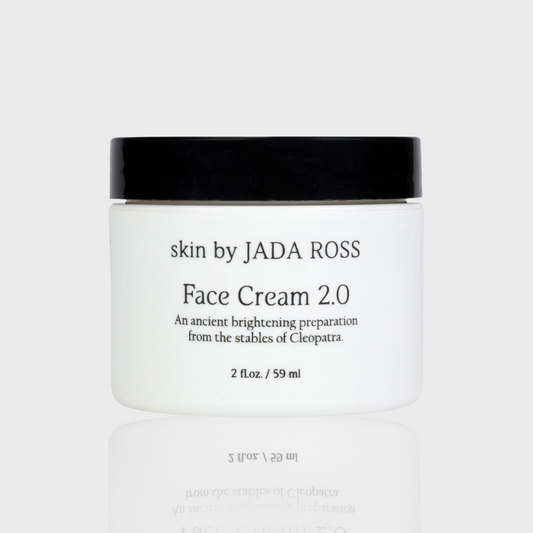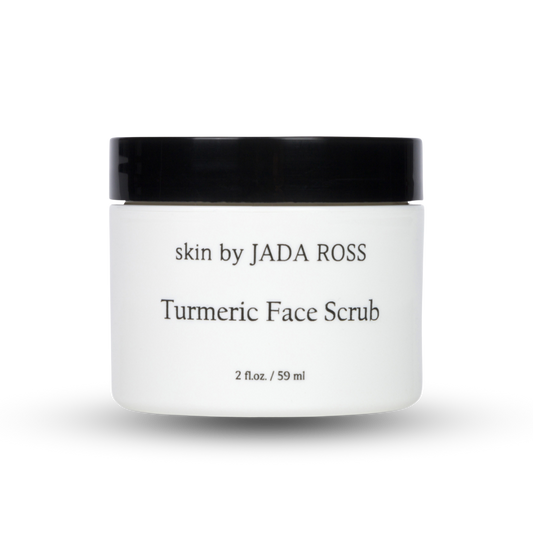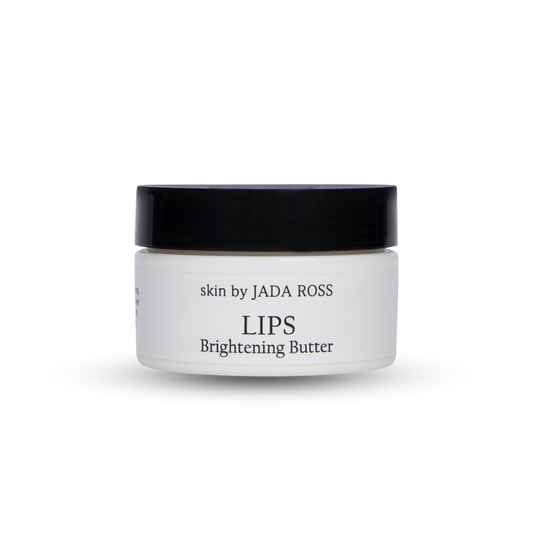How Stress Affects Your Skin and How to Combat It
Stress. It's a word that has become a constant companion for many of us, particularly women in today's fast-paced world. Whether it's work pressures, family responsibilities, or just the demands of daily life, stress can feel unavoidable. But what if I told you that stress is not just affecting your mood or energy levels—it's also showing up on your skin? Yes, stress can lead to a variety of skin issues, and understanding how it impacts your skin is the first step toward tackling these problems.
You've probably noticed that when you're stressed, your skin doesn't precisely look its best. It might break out, become dry, or even show signs of premature aging. But why does this happen? And what can we do about it?
In this blog, we'll explore the science of stress and skin health, explain how stress affects skin, and provide actionable tips for combating these effects with proper skincare.

Understanding Stress and Its Impact on the Body
What is Stress? Stress is a natural reaction of the body to any demand or threat. It can be both acute (short-term) and chronic (long-term), and while the stress response is a vital survival mechanism, too much of it can have serious consequences for our health.
When we encounter stress, the body releases hormones like cortisol and adrenaline to prepare for action. This is known as the fight-or-flight response. This is great for short bursts of stress—like when you need to meet a deadline or avoid a dangerous situation—but chronic stress keeps the body in a heightened state for prolonged periods, which can lead to health problems, including skin issues.
Link Between Stress and Skin: The connection between stress and your skin is not always immediate, but it's undeniable. Stress hormones like cortisol and adrenaline can trigger a series of responses in your body that directly affect your skin. From pimples to premature aging, stress affects the skin in numerous ways. Let's explore some of the most common skin issues caused by stress.

Common Skin Issues Caused by Stress
Acne and Breakouts: One of the most common skin problems linked to stress is acne. When you're stressed, your body produces more cortisol, which in turn increases oil production in your skin. Excess oil can clog pores, leading to the formation of pimples, blackheads, and acne breakouts. For many women, this means unwanted blemishes right before a big event or special occasion.
Stress can also trigger hormonal imbalances that contribute to acne, particularly in women during menstruation, pregnancy, or menopause. This makes managing stress even more critical for those prone to hormonal acne.
Eczema and Psoriasis Flare-ups: Stress can worsen pre-existing skin conditions like eczema and psoriasis. These conditions involve chronic inflammation, and stress can make inflammation worse. When you experience stress, the body releases pro-inflammatory cytokines that can exacerbate these flare-ups. For women dealing with these skin issues, stress management becomes a key element in keeping symptoms under control.
Wrinkles and Fine Lines: Prolonged stress can accelerate the aging process. Cortisol, the primary stress hormone, can break down collagen and elastin in the skin—two key components that maintain skin's elasticity and smoothness. Without sufficient collagen, the skin becomes thinner and more prone to wrinkles. The more prolonged your stress, the more likely you are to notice fine lines and wrinkles appearing earlier than expected.
Dryness and Dehydration: When you're stressed, your body's ability to retain moisture can suffer. Stress causes the body to lose water, leading to dehydration. Dehydrated skin looks dull and flaky, and can become more prone to irritation. In severe cases, dehydration may lead to conditions like dry patches, redness, and increased sensitivity.
Rosacea and Skin Redness: Stress is a known trigger for rosacea, a condition characterized by facial redness and visible blood vessels. When you're stressed, your body's blood vessels dilate in response, which can cause skin redness and exacerbate existing rosacea. Additionally, stress can make your skin more reactive to triggers like temperature changes, hot beverages, or spicy foods, making it even harder to manage.
The Science Behind Stress and Skin Changes
Cortisol and Its Role: Cortisol is often called the "stress hormone" because it's released during stressful situations. It helps your body cope with stress by increasing glucose production, suppressing the immune system, and triggering the fight-or-flight response. However, when cortisol levels remain elevated over time, it can disrupt skin health.
Elevated cortisol levels can trigger inflammation, slow down skin regeneration, and promote the breakdown of collagen and elastin—resulting in sagging, thinning skin and the appearance of wrinkles. The longer your body remains under chronic stress, the more significant the impact on your skin becomes.
Immune System Suppression: Chronic stress can weaken the immune system, making your skin more vulnerable to infection, irritation, and inflammation. When the immune system is suppressed, the body is less capable of fighting off bacteria that could cause breakouts or infections. This explains why people under stress may experience more frequent skin flare-ups, like acne, rashes, or psoriasis.
Blood Flow and Oxygen Supply: Stress can constrict blood vessels, reducing the flow of oxygen and essential nutrients to your skin. As a result, the skin's ability to heal itself slows down, and it can begin to look dull or sallow. When the skin isn't getting enough oxygen, it can also exacerbate existing skin conditions, leaving it looking tired and lifeless.

How to Combat Stress-Related Skin Problems
Managing Stress: Effective stress management is one of the most important steps you can take to protect your skin.
- Mindfulness and Meditation: Mindfulness practices like deep breathing, yoga, and guided meditation can help activate the body's relaxation response, lowering cortisol levels. Even just a few minutes of daily meditation can make a big difference in reducing overall stress.
- Exercise: Regular physical activity is another excellent way to reduce stress. Exercise not only boosts mood but also improves circulation, ensuring that your skin receives a steady supply of oxygen and nutrients. Activities like walking, swimming, or yoga are great options.
- Sleep: Sleep is essential for both mental and skin health. Poor sleep can increase stress levels and disrupt the skin's natural repair processes. Aim for at least 7-8 hours of restful sleep per night to allow your skin to regenerate and recover.
Diet and Hydration: Hydration is key when combating stress-related skin problems. Dehydrated skin is more prone to irritation, redness, and fine lines. Drink plenty of water throughout the day to keep your skin hydrated from the inside out.
Eating a well-balanced diet rich in antioxidants, healthy fats, and vitamins can also support skin health. Foods like leafy greens, berries, avocados, and nuts provide essential nutrients that help combat inflammation and support collagen production. Incorporate omega-3 fatty acids, vitamin C, and vitamin E into your diet for maximum skin benefits.
Skincare Routine:
- Gentle Cleansing: When stressed, it's important to avoid harsh skincare products that could irritate your skin. Use gentle, hydrating cleansers that maintain your skin's moisture balance.
- Moisturizing: Keep your skin hydrated with a rich moisturizer, especially during stressful times. Look for products with ingredients like hyaluronic acid, glycerin, or ceramides that help lock in moisture and strengthen the skin barrier.
- Sunscreen: Stress can make your skin more sensitive to UV rays, increasing the risk of sun damage. Always apply sunscreen with an SPF of at least 30, even on cloudy days, to protect your skin from harmful UV rays.
Professional Treatments: If stress has led to more significant skin issues, like severe acne or eczema flare-ups, consider seeking professional help. A dermatologist can offer treatments such as chemical peels, facials, or topical treatments tailored to your skin's needs. They may also recommend prescription-strength skincare products to help combat inflammation or breakouts.
Lifestyle Changes to Maintain Healthy Skin
Stress Management Practices: Creating a daily routine that includes stress-relieving practices is essential for long-term skin health. Try incorporating stress-reducing techniques such as journaling, walking in nature, or even listening to calming music.
Work-Life Balance: Managing work and life stress is crucial for overall health. Setting boundaries at work, taking breaks, and learning to say "no" when needed can help prevent burnout and reduce stress levels.
Avoidance of Stress-Inducing Habits: Certain habits, like excessive caffeine, alcohol, or smoking, can exacerbate stress and skin issues. Cutting back on these triggers can have a positive effect on both your mental and skin health.
In conclusion, stress affects your skin in many ways, from breakouts and dryness to premature aging and inflammation. However, managing stress through a healthy lifestyle, proper skin care, and stress-reduction techniques can help protect your skin and keep it looking its best. Remember, skincare isn't just about the products you apply—it's also about taking care of your mental and emotional well-being.
By incorporating stress management into your daily routine, you can reduce the adverse effects of stress on your skin and promote overall health. Taking care of yourself both inside and out is an investment in your future beauty, confidence, and well-being.







Leave a comment
Please note, comments need to be approved before they are published.